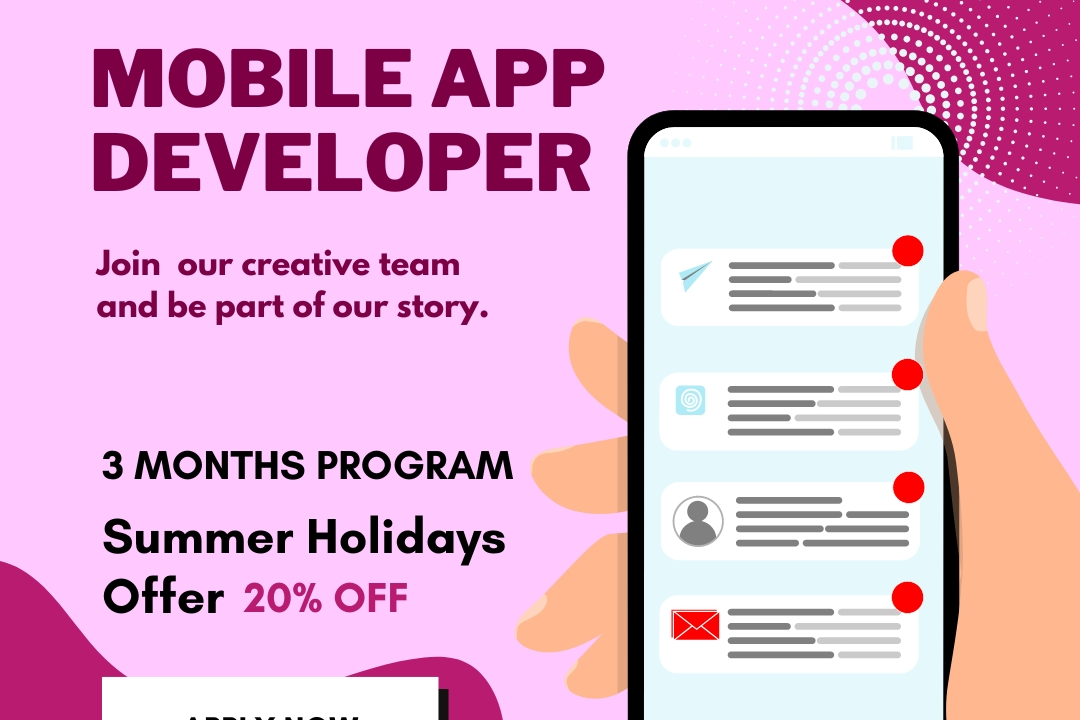Flutter vs kotlin
Choosing Between Flutter and Kotlin for Mobile Development
Flutter vs kotlin
Flutter is a popular UI toolkit developed by Google for building natively compiled applications for mobile, web, and desktop from a single codebase using the Dart programming language. On the other hand, Kotlin is a modern and concise programming language developed by JetBrains that can be used to create native Android applications. While Flutter is focused on cross-platform development, Kotlin is more commonly used for native Android app development. Both technologies have their own strengths and are widely adopted by developers, with Flutter providing a faster development cycle and hot reload feature, and Kotlin offering a strong toolset and interoperability with existing Java codebases. Ultimately, the choice between Flutter and Kotlin depends on the specific requirements of the project and the developer's familiarity with each technology.
To Download Our Brochure: https://www.justacademy.co/download-brochure-for-free
Message us for more information: +91 9987184296
1 - Flutter is a cross platform UI toolkit developed by Google for building natively compiled applications for mobile, web, and desktop from a single codebase. Kotlin, on the other hand, is a programming language developed by JetBrains for building Android applications.
2) Flutter uses the Dart programming language, which was also developed by Google, whereas Kotlin is specifically designed to be fully interoperable with Java for Android development.
3) Flutter follows a reactive programming approach with its widget based architecture, making it easy to create complex user interfaces and handle state management efficiently. Kotlin, on the other hand, offers more flexibility in terms of coding style and structure.
4) Flutter provides a hot reload feature, allowing developers to instantly see the changes they make to the code reflected in the app UI without restarting the application. Kotlin also offers some level of live data updates but may not be as seamless as Flutter's hot reload.
5) Flutter has a strong community support and a rich set of UI components and libraries available through its package manager, making it easier for developers to add features to their apps. Kotlin, being a language, also has a supportive community but may not have the same level of ready to use components as Flutter.
6) Flutter's performance is often praised for its speed and smooth animations, thanks to its compilation into native ARM code. Kotlin apps can also achieve good performance, but Flutter's architecture and rendering engine give it an edge in terms of UI performance.
7) Flutter is ideal for building visually rich and interactive applications with a focus on design consistency across platforms. Kotlin is a more general purpose language, suitable for a wide range of applications beyond mobile development.
8) Learning Flutter can be beneficial for students interested in mobile app development, especially those looking to work on multiple platforms without learning separate languages. Kotlin, on the other hand, is great for students focused on Android app development specifically.
9) Flutter's popularity has been on the rise in recent years, with many companies adopting it for their mobile app projects. Kotlin, as the official language for Android development, is also widely used and in demand in the industry.
10) Training students in Flutter can provide them with skills in modern app development practices, UI design, and state management, all of which are highly relevant in today's tech industry. Kotlin training, on the other hand, can equip students with solid foundations in Android development and programming principles.
11) Students pursuing a career in mobile app development can benefit from learning both Flutter and Kotlin, as it can give them versatility in their skill set and increase their job opportunities in the market.
12) Offering a comprehensive training program that covers both Flutter and Kotlin can provide students with a well rounded education in mobile app development, preparing them for real world projects and challenges.
13) Hands on projects and practical exercises can be included in the training program to help students apply their knowledge of Flutter and Kotlin in creating their own mobile applications.
14) Industry experts and guest speakers can be invited to share insights and best practices in using Flutter and Kotlin for mobile app development, giving students a real world perspective on the technologies.
15) Certification or portfolio building opportunities can be integrated into the training program to showcase students' proficiency in Flutter and Kotlin, which can be valuable when seeking internships or job placements in the field.
Browse our course links : https://www.justacademy.co/all-courses
To Join our FREE DEMO Session: Click Here
Contact Us for more info:
Difference Between Bastar And Java
Core Python Topics
Java Interview Topics For 5 Years Experience
Difference Between Software And Application Software
Laravel Full Course











